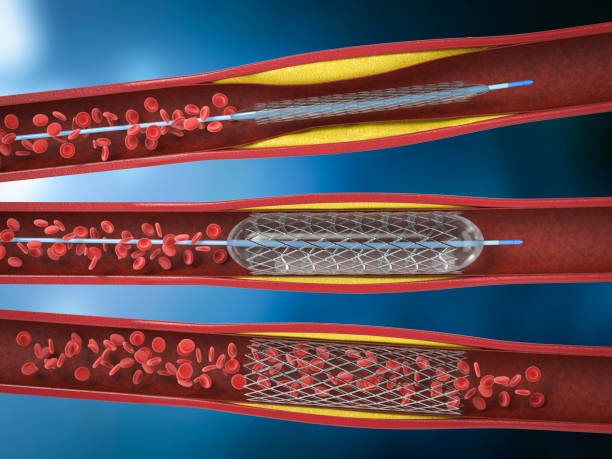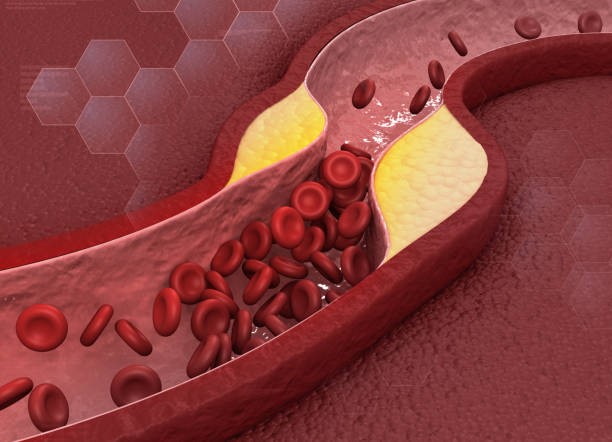Health Conditions
Artery Disease: Causes, Symptoms, and Treatments
Welcome to an illuminating journey into the world of artery disease. In this comprehensive article, we will demystify the causes, symptoms, and treatments, providing you with a clear understanding of this widespread condition.
What is artery disease?
Atherosclerosis, another name for arterial disease, is the narrowing and hardening of the arteries that provide oxygen-rich blood to different areas of the body. This results in decreased blood flow, which might have major negative effects on health. The primary cause of arterial disease is the accumulation of plaque, which is made up of fat, cholesterol, calcium, and other materials. This plaque causes the arteries to constrict and harden over time, decreasing blood flow and raising the risk of blood clots and heart attacks.
By understanding the underlying mechanisms of artery disease, we can better grasp the causes, symptoms, and treatments associated with it.
Common causes of artery disease
Arterial disease develops as a result of several circumstances. An unhealthy lifestyle is one of the main contributing factors. Bad dietary habits, inactivity, tobacco use, and heavy alcohol use can all negatively affect the condition of our arteries. High consumption of processed foods, trans fats, and saturated fats can raise cholesterol and cause plaque to accumulate in the arteries. Sedentary behavior also raises the risk of diabetes, high blood pressure, and weight gain—all of which are linked to arterial disease.
A family history of artery disease is another important contributing factor. There is a genetic component to our vulnerability to coronary artery disease. The likelihood of getting artery disease is increased if a parent or sibling, for example, has been diagnosed with the illness. This emphasizes how crucial it is to be aware of our family’s medical history and to reduce risk by being proactive.
Finally, the risk of acquiring arterial disease may be elevated by specific underlying medical disorders. A number of illnesses, including metabolic syndrome, diabetes, high blood pressure, and obesity, can accelerate the development of arterial disease. These circumstances frequently coexist and provide the ideal environment for the development of arterial plaque.

Risk factors for developing artery disease
In addition to the usual reasons, artery disease is more likely to develop due to a number of risk factors. Given that the risk of arterial disease rises with age, age is a major risk factor. Men are also more vulnerable than women, despite the fact that following menopause, women’s risk rises dramatically.
High blood pressure, high cholesterol, and smoking are other risk factors. The arterial walls are under stress from high blood pressure, which increases their vulnerability to deterioration and plaque accumulation. Plaque in the arteries is a result of elevated cholesterol, especially high levels of LDL (low-density lipoprotein) cholesterol. Smoking causes harm to blood vessels and quickens the artery disease’s course.
Symptoms of artery disease
A lot of the time, arterial disease develops quietly and without obvious signs. However, symptoms could become more noticeable as the illness worsens. Angina is a typical sign of artery disease that is characterized by discomfort or soreness in the chest. This ache usually goes away with rest and is frequently brought on by physical activity or emotional stress. Angina should be handled carefully since it may occasionally be an indication of a potential heart attack.
Shortness of breath, particularly with physical exertion, and leg soreness or cramps when walking or stair climbing are other signs of artery disease. The restricted blood supply to the legs causes these symptoms, sometimes referred to as claudication, which can seriously lower one’s quality of life.
Diagnostic tests for artery disease
Your healthcare practitioner may advise diagnostic testing to assess the state of your arteries if you have known risk factors or encounter symptoms that might indicate arterial disease. A typical exam is the stress test, which gauges how your heart reacts to exercise. You could be required to walk on a treadmill or ride a stationary bike during this test, and your movements will be watched closely for any indications of decreased blood flow.
An angiography is another diagnostic method that shows the blood arteries in great detail. In order to see any blockages or narrowing in the arteries, X-rays are taken after a contrast dye injection. Blood testing can also be used to measure cholesterol levels and find any underlying medical issues that might be a factor in artery disease.
Treatment options for artery disease
With an artery disease diagnosis, you and your doctor can discuss several choices for treating your particular problem. It is significant to remember that different treatment modalities may be used based on the severity of the illness and personal risk factors.
Lifestyle changes to prevent and manage artery disease
Making lifestyle changes is a fundamental part of therapy for arterial disease. Eating a diet high in fruits, vegetables, whole grains, and lean meats helps lower cholesterol and enhance cardiovascular health in general. It’s also critical to restrict salt, added sweets, and saturated and trans fat intake.
Another important part of treating arterial disease is regular exercise. Walking, swimming, and cycling are examples of aerobic exercises that can increase blood flow, lower blood pressure, and lessen the risk of blood clots. Try to get in at least 150 minutes a week, spaced out across many days, of moderate-intensity activity.
It’s critical for smokers with vascular disease to give up. Smoking raises the risk of heart attacks, damages blood vessels, and hastens the development of plaque accumulation. To improve your chances of success, look for assistance from medical specialists or programs designed to help people quit smoking.
Medications for treating artery disease
To treat arterial disease, doctors may also recommend medication in addition to lifestyle modifications. One class of cholesterol-lowering drug that is frequently recommended to decrease LDL cholesterol and stabilize plaque is statin. To address certain risk factors and avoid problems, doctors may prescribe additional medications such as blood pressure pills, antiplatelet meds, and anticoagulants.

Surgical interventions for artery disease
Surgical operations may be required in situations with artery disease that are more severe. A small balloon is inserted into the clogged or constricted artery during minimally invasive treatments called angioplasty and stenting in order to expand the artery and restore blood flow. An artery can also be kept open by the placement of a stent, which is a tiny mesh tube.
In situations when there are significant obstructions, bypass surgery could be advised. Bypassing the clogged artery with a blood vascular transplant, this surgery restores blood flow to the injured region.
Think of your heart like the engine that keeps your body running. Just like you’d give your car regular check-ups to keep it in top shape, your heart deserves the same attention. Early detection and open conversations with your healthcare provider are like giving your heart the maintenance it needs for a smooth, healthy journey. By taking these steps, you’re not just looking out for your heart; you’re investing in a better, longer, and more vibrant life. So, schedule those check-ups and keep the communication lines open – your heart will thank you for it!


